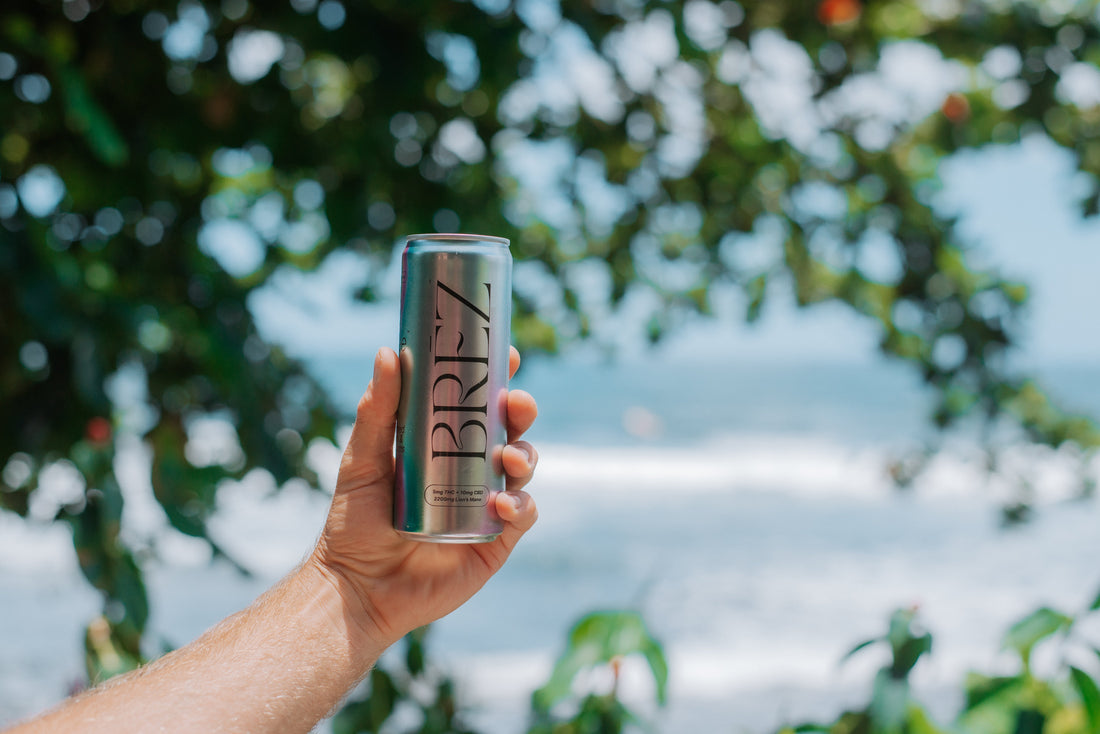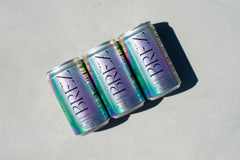How are THC Drinks Legal?

In a country where cannabis is federally illegal, it can be confusing that you can now order THC drinks online and buy them in liquor and grocery stores. Many are unsure how these products are legal, if they are safe, and how they have suddenly become more accessible than ever before.
What are Cannabis Infused Beverages?

Cannabis drinks are beverages typically infused with THC, the psychoactive compound found in cannabis. They provide an alternative method of cannabis consumption in a familiar format, without any smoking or inhalation required. Many see cannabis beverages as the first truly social cannabis experience, as they provide a convenient, discrete, and familiar way to consume cannabis in casual and social settings.
THC beverages provide an excellent alcohol alternative -- especially when they include adaptogens or minor cannabinoids -- because they provide a social buzz without any of the hangovers or regrets typically experienced with alcohol consumption. Low-dose THC-infused beverages are a great option for those looking to cut back or remove alcohol consumption completely from their habits, and are typically lower in calories and sugars than many alcoholic options.
A Brief Background of THC drinks in the US

Cannabis drinks had a slow start when they first were developed. It was initially difficult to make THC water soluble, because cannabis extract is an oil. When early drink makers tried to add this to beverages, the extract would often sink to the bottom or stick to the sides of the can. This reduced the potency of the drinks and provided inconsistent drinking experiences. It also made many of these beverages taste distinctly like cannabis, which is not a flavor that everyone enjoys.
But finally, thanks to a few technological innovations, companies were able to start producing accurately dosed drinks that were more stable and actually tasted good! Advancement in emulsion technology allowed produces to break down the THC extract into tiny particles, making them soluble, homogenous, and tasteless. Revamped can liners helped add to the stability of these emulsions so that most drinks now have a shelf life of 1 year.
Between 2017 - 2018, cannabis drinks became more of a legitimate product in the recreational dispensary channel. They grew slowly, but still never reached more than 1% of dispensary sales by category since they were very expensive and many consumers still didn't shop at dispensaries.
This all changed in 2020 - 2021, when hemp manufacturers discovered an opening in the 2018 US Farm bill that allowed them to derive THC from hemp extract, which is federally legal. This enable them to sell THC beverages in liquor stores, grocery stores, restaurants, and bars, which finally created the right environment for cannabis drinks to reach the right consumers and gain critical mass.
For the past few years, THC beverage sales have surged in many states across the country retail and online availability have increased, as well as the growing popularity of the sober curious movement. Many Americans are looking to reduce alcohol intake embody a healthier lifestyle, and the timing of THC beverages could not be more perfect.
The Legal Status of THC Drinks

The legal landscape of cannabis beverages can be a bit messy. Here is an easy way to understand it:
Cannabis-derived THC drinks: Federally illegal, but legal in any state that has a recreational or medical cannabis market, and must be sold through licensed dispensaries within these markets. These products cannot be shipped or transported interstate because of cannabis' legal status federally. There are over 35 states now that have a state regulated cannabis market.
Hemp-derived THC drinks: Federally legal, but restricted in some states. Hemp with <0.3% THC was legalized through the 2018 Farm Bill, and just a few years after this passed, manufacturers developed THC products that were just as potent as cannabis products but were federally legal. Hemp and cannabis are the exact same plant, the difference is merely a legal classification, so the THC derived from either of them is the same compound. While the regulations in various states are ever-changing, at the moment BRĒZ does not sell in the following states based on their restrictions: Washington, Connecticut, Idaho, Kansas, and Alaska.
The Legal Landscape of Hemp derived cannabinoids

While hemp derived cannabinoids like THC are legal under federal law, there is a lot of speculation as to whether this outcome was intentional, with many calling the hemp cannabinoid space a "loophole." This is an especially popular among idea among medical/recreational cannabis operators, who believe that hemp-derived THC products are stealing from their markets. Loophole or not, hemp has proven that consumers will readily adopt THC products if they are given easier access to them.
The most important decision on the horizon for this space is the new Farm Bill, which was supposed to be finalized in the fall of 2023 but has now been pushed off a year. With federal and state governments now fully aware of the hemp-derived cannabinoid space, it will be called into question whether they will continue to allow consumable products to be sold through this channel or add amendments that keep hemp strictly as a industrial product.
BRĒZ is a strong supporter of the hemp-derived cannabinoid market as it has allowed us to grow faster and impact the lives of more customers than would ever be possible through state regulated cannabis markets. BRĒZ is working hard with other leaders in the space to ensure the most favorable outcome for this upcoming Farm Bill, so that consumers continue to have safe and easy access to consumable THC products.
The Impact on the Cannabis Industry

The popularization of THC beverages -- along with increased legalization across the country -- is helping make cannabis immensely popular as a substance of choice or alcohol alternative over the past few years.
Despite a large number of Americans supporting federal legalization, cannabis still faces unfair stigmatization across the country. Individual towns ban cannabis even in states that have legalized it, unreasonable and frankly ridiculous regulations are enacted that create massive barriers for business operators and consumers, and the media continues to constantly fear monger with baseless claims while completely ignoring the many negative externalities created from alcohol consumption.
THC beverages are a way to help erase this stigma because they blend in so well to the social drinking culture that is so prevalent in the US. They avoid the smell, smoke, and additional harm that comes with smoking cannabis, and they are presented in an approachable, sessionable, and easy-to-understand format that makes it more likely for first time cannabis users to try.
The Impact on the Alcoholic & Non-Alcoholic Beverage Market

The US alcoholic beverage market has been plateauing and even declining in recent years. American's are trying to be healthier, Gen Z is drinking less, and Dry January is growing in popularity with each passing year.
Back in May, it was reported that daily cannabis use overtook daily drinking in the US. 2023 marked the lowest year for beer sales since 1999 according to NBC. 66% of millennials are making a conscious effort to reduce alcohol consumption according to Nielsen. Non-alcoholic and functional beverages will continue to eat market share of traditional alcoholic beverages as consumers increasingly seek better, healthier alternatives.
The future will not be one without alcohol, but instead one with more choices. BRĒZ and other leaders in the cannabis and functional beverage space envision a world where bars, restaurants, and social gatherings have alcoholic, non-alcoholic, cannabis, and functional beverage options all alongside each other. Alcohol producers have already started diversifying their portfolios with non-alcoholic products, and this trend will likely continue as they look to make up revenue from declining alcohol sales.
The Future of the Industry

The future for THC infused beverages is full of opportunity. BRĒZ aims to be the worlds leading functional beverage company, and will continue to make THC infused and non infused drinks that include various botanicals, adaptogens, and nootropics to create truly efficacious experiences.
For the broader industry, there is a huge opportunity to create flavors and formats that more closely mimics alcohol. Multi-serve or "THC-spirit" options have emerged, giving consumers a way to make their own infused cocktails. Other RTD options like mocktails, beers, and sodas will continue to expand as consumers seek more selection.
The possibilities are endless, and while THC infused drinks have been around for about 8 years now, this category is still in its infancy.

Discover the Benefits of Cannabis Drinks: A Refreshing Way to Relax
As the landscape of cannabis consumption...






